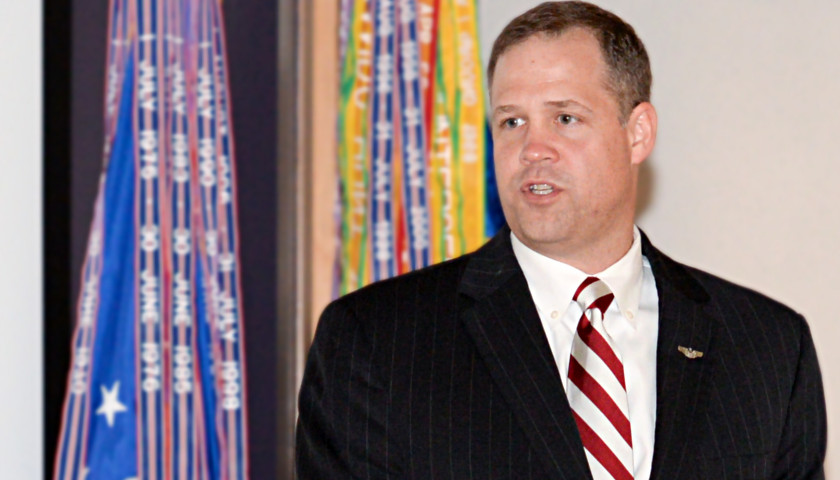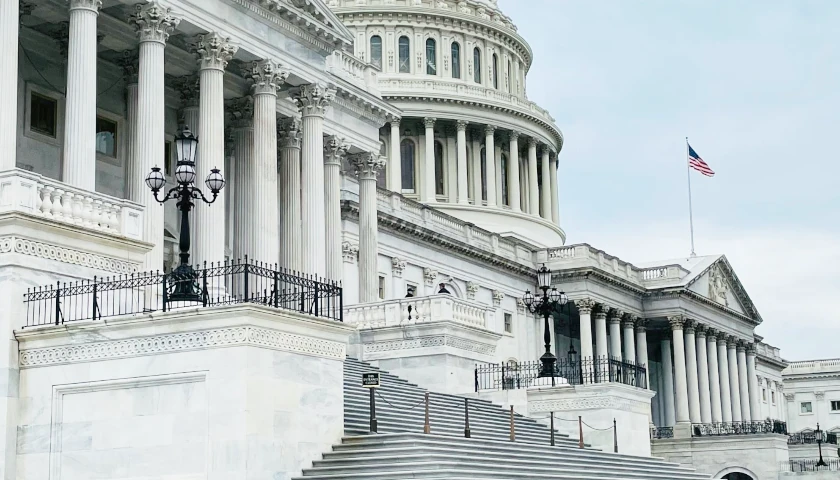by CHQ Staff
If Republicans really control the Senate, then why are they making confirming Republican President Donald Trump’s department heads and subcabinet posts so difficult?
As our friend James Wallner pointed out a couple of weeks ago, in a column for The Washington Examiner, technically, Senate minorities are no longer able to single-handedly block a confirmation vote for a presidential nomination, thanks to Democrats triggering the nuclear option in 2013 to lower the threshold for invoking cloture on all nominations (other than for the Supreme Court) from three-fifths of senators to a “majority-vote.”
The 2013 nuclear option eliminated the supermajority filibuster for most nominations. Republicans followed suit in 2017, using the maneuver to eliminate the minority’s ability to filibuster Supreme Court nominees.
Yet despite these changes, observed Wallner, Senate rules still allow senators to delay the process after cloture has been invoked – by dragging out the time permitted under the rules before the final confirmation vote.
And it is especially peculiar that nominees with establishment Republican – or worse yet Democratic backgrounds – seem to fly right through, while solid movement conservatives seem to take forever.
Capitol Hill Republicans have been trying to blame Democrats, and President Trump has joined in to claim obstruction by his Democratic nemesis New York’s Senator Charles Schumer, the Senate Minority Leader, but as Wallner documented, the fault can’t really be laid at Schumer’s feet:
…it turns out that Republicans are also to blame for the status quo. Specifically, the way in which McConnell and his Republican colleagues have structured the confirmation process this Congress has empowered Democrats to delay work on otherwise uncontroversial nominees.
Given their role in the matter, Senate Republicans could speed things up. To do so, they must refuse to cooperate with Democrats in delaying presidential nominations and instead enforce the Senate’s existing rules governing the confirmation process.
The rules governing post-cloture time are as follows: Once the Senate votes to end debate on a nomination, that nominee remains before the Senate “to the exclusion of all other business until disposed of.” The rules also limit post-cloture time to no more than 30 hours and stipulate that “no senator shall be entitled to speak in all more than one hour on … the matter pending before the Senate” during that period. Notably, the rules do not require post-cloture time to last for 30 hours; a confirmation vote can occur earlier if no senator wants and is able to speak.
Yet Republicans regularly move to waive these provisions by unanimous consent. For example, McConnell and his colleagues routinely ask unanimous consent immediately after the Senate votes regarding one of Trump’s nominations that the Senate instead “proceed to legislative session for a period of morning business with senators permitted to speak therein for up to 10 minutes each.” In other words, instead of keeping the nomination in question pending before the Senate to speed up the confirmation process, Republicans seek Democrats’ permission to suspend consideration. And they have done this on 7 out of the 15 nominees on which cloture was filed between January 1 and March 19 of this year.
Senate Republicans also lock in confirmation votes, usually for the following day and sometimes even several days later, despite the fact that the rules don’t require 30 hours to transpire after cloture has been invoked. In doing so, they effectively make 30 hours the minimum, rather than the maximum, time that must elapse before a nominee can be confirmed.
And they don’t stop there. Coupled with such consent requests, Republicans also make it easier for Democrats to impede the nomination process by asking unanimous consent that all time “during recess, adjournment, morning business, and leader remarks count post-cloture” for the nominee in question. Under the Senate’s rules, post-cloture time is only required if a senator wants to speak. By letting such time run when the Senate isn’t in session, Republicans make it possible for Democrats to delay nominees without speaking. They have done this on 9 of the 15 nominees on which cloture was needed between Jan. 1 and March 19 of this year.
Republicans also slow down the confirmation process themselves by preventing the Senate’s presiding officer from calling a vote whenever a member isn’t speaking on the Senate floor.
The Senate’s precedents state, “When a senator yields the floor and no other senator seeks recognition, and there is no order of the Senate to the contrary, the Presiding Officer must put the pending question to a vote.” In other words, the Senate should vote immediately on a nominee if no one is speaking.
Yet Republicans routinely prevent the Senate from doing so by suggesting the absence of a quorum whenever they finish giving a speech on the floor. Doing so effectively suspends Senate business until another member comes to the floor to speak. While the Senate is in a quorum call, the Presiding Officer can’t call a vote on the nominee under consideration. From January 1 to March 19, 13 Republicans ended their speeches by suggesting the absence of a quorum during the consideration of one of Trump’s nominations on 20 different occasions. By preventing the presiding officer from calling for a vote in these situations, Republicans are effectively delaying Trump’s nominees.
Two cases in point illustrate the problem.
Russell Vought, who served on the staff of several conservative members of Congress before moving to the Heritage Foundation, was nominated to be Deputy Director of the Office of Management and Budget on May 5, 2017.
After Vought was subjected to an astonishingly anti-Christian confirmation hearing, it took the Republican Senate until February 28, 2018 to act on his nomination.
Perhaps even worse has been the treatment of limited government constitutional conservative Rep. Jim Bridenstine who was nominated to be the Administrator of NASA, the National Aeronautics and Space Administration.
Rep. Bridenstine, a Navy pilot, and former executive director of the Tulsa Air and Space Museum & Planetarium, served on the House Committee on Armed Services and on the Committee on Science, Space and Technology, sitting on the subcommittee that oversees NASA.
Bridenstine was nominated September 5, 2017, however the Republican controlled Senate failed to act on his nomination before the end of the first session of the 115th Congress, forcing President Trump to resubmit his nomination.
Yesterday, Senator McConnell filed a cloture motion that could bring Bridenstine’s nomination to the floor of the Senate for confirmation, but the timing is not yet assured. What’s more, the Senate Majority Leader’s office indicated in a recent email that with the nominations voted on last week the Senate was likely to move to legislative business this week, leaving Jim Bridenstine and over 100 other presidential nominees still awaiting confirmation votes.
The toll-free Capitol Switchboard is (1-866-220-0044) we urge CHQ readers and friends to call their Senators today to urge them to vote for Rep. Jim Bridenstine to serve as NASA Administrator and to immediately move the 100 other nominations languishing on the Senate calendar to the floor for a vote.






The simple fact is that President Trump is not one of the fat cat Washington elite therefore even those of what is supposed to be his own party are part of the Resistance. the exact problem with the Swamp.